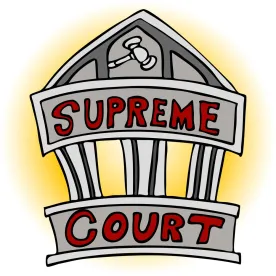On February 26, 2018, the United States Supreme Court is set to hear arguments regarding whether public employees who decide to not join their designated union may still be charged “agency fees” in support of collective bargaining in the case styled as Janus v. American Federation of State, County, and Municipal Employees. The Court’s 1977 decision in Abood v. Detroit Board of Education allows unions to charge fees to non-members for collective bargaining, but prohibits unions from charging non-members for customary political causes, such as political donations and lobbying.
Janus challenges fees paid in 22 states by firefighters, teachers, police, and other public workers that declined to join unions. The unions they refused to join must still represent them with respect to collective bargaining issues. At the heart of their position, the public workers challenge the Abood decision through the Illinois Public Labor Relations Act (the “IPLRA”), which states that public sector unions owe a duty of fair representation to members of a bargaining unit when the workers elected that union to be their representative. Once the union is elected to be the representative, all workers are entitled to the union’s representations regardless of whether they are actually union members. Unions in Illinois, however, typically negotiate a “union security clause,” which authorizes the union to force non-union members to pay agency fees for wages, hours, and other conditions of employment.
The public workers at issue in Janus argue that they have a constitutional right to free speech under the First Amendment to refuse payment for benefits and services received from the union contract when they opted to not join the union. The crux of their argument is that all union activity is inherently political, and that it would therefore violate their free speech rights under the First Amendment to compel them to pay for the union’s political activity. It will strike a blow to unions and their security in the public sector if the Court determines that the “fair share” fees are unconstitutional. Unions may see a significant diminution in union density and an inability to financially support continued operations and efforts. The Court’s decision in Janus will likely have significant influence on the future of unions and their negotiation power.




 />i
/>i

